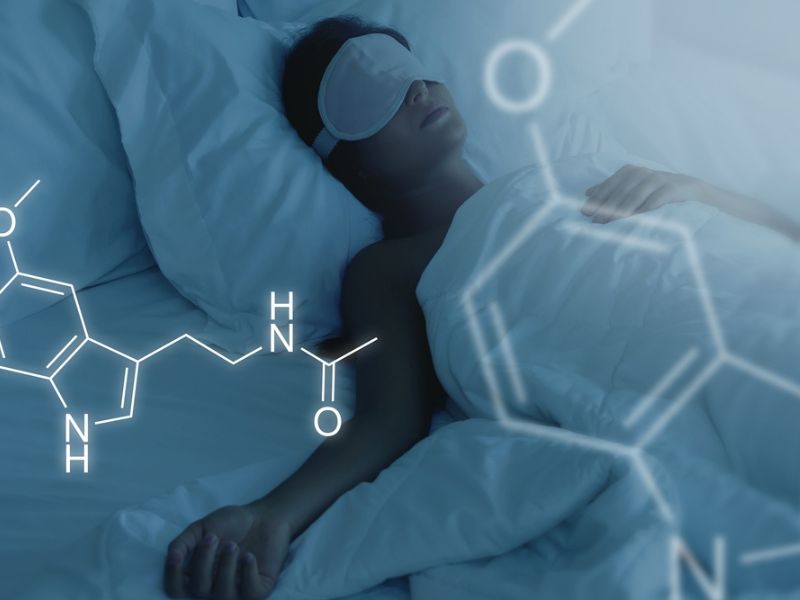The sleeping disorder affects one in three Americans, prompting many to take melatonin supplements such as capsules, gummies, or liquids to help them sleep. Our bodies naturally signal when it is time for rest through the melatonin hormone. Its levels are highest at night as the sun sets and lowest in the morning as the light increases.
Dr. Raj Dasgupta, a specialist in sleep medicine and pulmonary care, says melatonin enhances sleep, though it’s not essential. Is melatonin supplementation affecting our bodies and brains?

Image Credit: Shutterstock/BLACKDAY
Our Body Blocks Are Pushed Up
Pineal glands release melatonin as a natural sleep aid, which regulates the body’s circadian rhythm. Taking melatonin supplements can signal to the body that it’s time to rest at a new time, such as after a night shift or jet lag.
Dasgupta said, “It helps shift your circadian rhythm by giving your body that hormone which is released normally at a different time.”
Our Intake May Be Too High
The FDA doesn’t regulate how much or when to take melatonin as a dietary supplement. It can cause headaches, vomiting, and changes in blood pressure if taken too much. There is no clear dosage marker for melatonin sold over the counter, and some brands may even contain more than recommended.

Image Credit: Shutterstock/Microgen
We May Experience Side Effects
Dasgupta says the hormone naturally occurs in our bodies, so few warnings about side effects are included. He notes that it is possible to experience daytime sleepiness, headache, dizziness, and upset stomach, but treatment is necessary if they persist. In adults, taking melatonin short-term is generally safe. However, long-term use is unclear.
There Is A Possibility Of Psychological Dependence
The best way to treat insomnia is with cognitive behavioral therapy. Some believe that melatonin’s positive effects are a placebo effect since melatonin alone is not an effective sleep aid for adults. We become “psychologically dependent” on the melatonin supplement if we perceive it to improve our sleep quality.